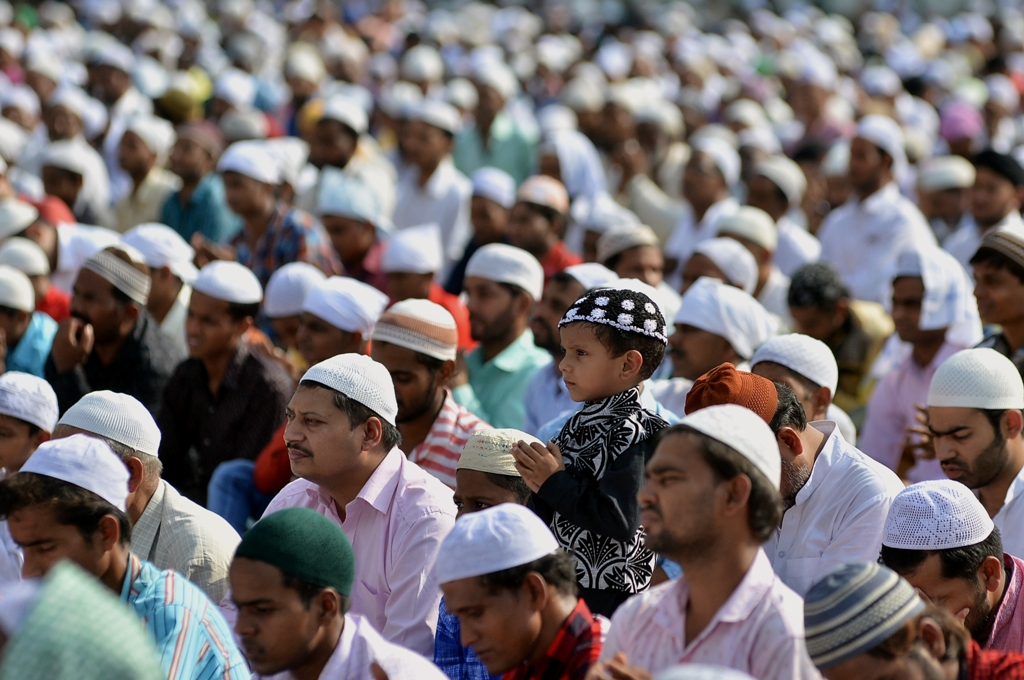From Voters to Suspects - How Seemanchal’s Muslims Become Bihar’s Scapegoats

Sami Ahmad, TwoCircles.net
Patna: In a viral video posted by Bharatiya Janata Party (BJP) Bihar’s official Facebook page, Deputy Chief Minister Samrat Chaudhary stares into the camera and raises a pointed alarm. The reason? An unprecedented growth in applications for domicile certificates in Kishanganj - the state's only Muslim-majority district. With more than 11,000 likes and counting, the clip has struck a chord with BJP supporters. But for the people of Seemanchal, it has struck fear.
“There is a sudden surge of over 2 lakh applications in just one week, from July 1 to 7. Earlier, we barely got 25,000 in a month. This cannot be normal. Are Bangladeshis or foreigners from other countries behind this? This is the reason we have directed the administration to issue a certificate only after intensive review," Chaudhary says in the video.
For those living in Kishanganj and in neighbouring districts of Araria, Katihar and Purnea, this question is not new. But now, it is echoing with more force - coming not from political rallies but creeping into state machinery.
The Election Commission’s recently launched Special Intensive Revision (SIR) of voter lists has only deepened the anxiety. The SIR demands 11 forms of documentation, one of which is the domicile certificate. Activists and observers warn that if someone's papers are rejected, they risk not only disenfranchisement but being labelled an "illegal foreign immigrant".
The spectre of the controversial National Register of Citizens (NRC) looms large.
This is not about Kishanganj anymore. All of Seemanchal feels under siege. Aadhaar (a unique identification card) is suddenly in the spotlight too. Newsrooms are airing breathless reports on the region’s so-called “oversaturation” of Aadhaar enrolment, strongly implying something sinister beneath the surface and emphasising that this is a Muslim area.
One national channel claimed that Aadhaar coverage in Kishanganj stands at 126%, with Katihar and Araria at 123% and Purnea at 121%. The implication - something shady is going on here.
But when the full picture came into view, the narrative started to wobble. Of Bihar’s 38 districts, only Jehanabad has Aadhaar coverage below 100%. With very little Muslim population, Sheikhpura stands at 118%. So why single out Seemanchal?
Congress' Kishanganj MP Dr Mohammad Jawed believes that he knows the answer. “The BJP and its ideological mentor RSS (Rashtriya Swayamsevak Sangh) have always tried to malign our area. They have picked out this Aadhaar data and are whipping up hysteria. But they did not bother comparing other districts. Many of them are in the same situation,” he says.
He further argues that the people of Seemanchal are simply trying to protect their right to vote. “Our people are more alert now. They are making sure their names are on the list. I just want to ensure that no eligible voter is denied the right to vote,” he says.
The alleged Aadhaar “oversaturation” may not even be accurate. Experts say these numbers are based on outdated or underestimated population projections. If the actual population is higher than what is officially estimated, the Aadhaar saturation rate will naturally cross 100%.
So why the sudden panic? Many believe this is about building a narrative. A narrative that links Muslims to infiltration, fraud and illegal immigration. And just as the Supreme Court has asked the Election Commission to consider Aadhaar as valid ID for voter verification, a campaign seems to be building pressure to drop it from the list.
As the political temperature rises, opposing camps are digging in.
BJP leaders continue to highlight the saturation figures, fuelling suspicion and tightening the grip around Seemanchal.
Meanwhile, Opposition voices like Tejashwi Yadav of the Rashtriya Janata Dal (RJD) and Mahua Moitra of the Trinamool Congress (TMC) warn that the SIR process could disenfranchise thousands of genuine voters, especially the poor and marginalised. Aadhaar, they say, must stay in.
On the ground in Araria, people are confused, worried and trying to keep calm.
Naiyaruzzama, a noted social activist in Seemanchal, says this whole controversy is being whipped up for votes. “Applying for a domicile certificate is free. You don’t need to go to Patna like you do for a passport. These are landless people. Most don’t have land deeds. And with low education levels, they lack school certificates too. That is all well-known, but ‘they’ (the BJP) are twisting it to mislead the Hindu population.”
For many, it is routine. It is survival. But to the powerful, it is politics.
Akhtarul Iman, Bihar’s only MLA from the Asaduddin Owaisi-led All India Majlis-e-Ittehadul Muslimeen (AIMIM), puts it, “Seemanchal is easy to target. It is Muslim-majority district, so it is always under the scanner.”
He speaks of a fragile life. One disrupted again and again. “People here have few documents. Floods take away what little they have. During admissions or job drives, they apply for birth or domicile certificates. That is normal. What is so suspicious about that?” he asks.
Behind the numbers and accusations are real lives, which are under scrutiny and caught in the crossfire of identity and politics. Paperwork in the most backward region (Seemanchal) of the state has become a battlefield. It is a war over certificates and a fight for belonging.
